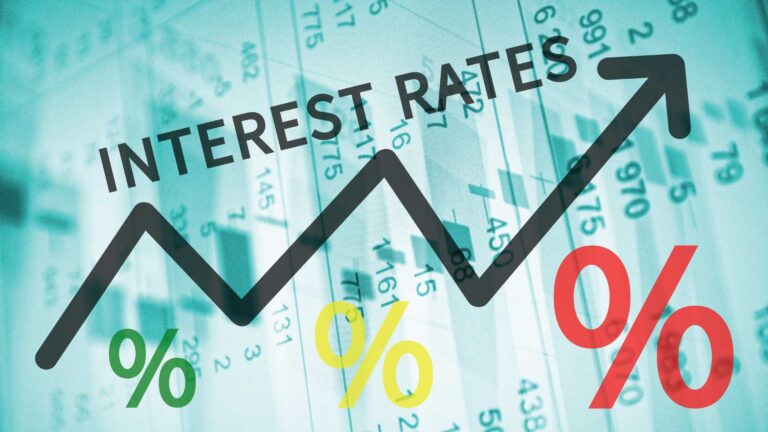Nigeria’s private sector leaders have issued strong warnings that the Central Bank’s persistent high interest rate—currently at 27.5%—is undermining local industries and jeopardizing the ‘Nigeria First’ procurement policy.
The Manufacturers Association of Nigeria (MAN), Lagos Chamber of Commerce and Industry (LCCI), and other business groups have expressed deep concern over the Central Bank of Nigeria’s (CBN) decision to maintain the Monetary Policy Rate (MPR), saying it cripples industrial productivity and discourages domestic investment.
Manufacturers Sound the Alarm
Segun Ajayi-Kadir, Director-General of MAN, described the current lending environment as “hostile” for manufacturers, warning that the Nigeria First initiative—designed to prioritize the use of locally made products in public procurement—may collapse without urgent intervention.
“This policy cannot thrive when local producers are weighed down by the heavy burden of expensive credit,” he said.
The MPR, which serves as the benchmark for interest rates, has stayed at 27.5% since November 2024, a level Ajayi-Kadir said is “strangling” the manufacturing sector. Lending rates have climbed to over 37%, driving manufacturers’ borrowing costs from ₦1.43 trillion in 2023 to ₦2.06 trillion in 2024—a staggering 44% increase.
He emphasized that while banks enjoy soaring profit margins, manufacturers are facing shrinking revenues, rising debt, and falling productivity—a disparity he described as an “economic paradox.”
Calls for Bold Reforms
Ajayi-Kadir urged the CBN to adopt a more balanced approach that supports both price stability and economic growth. He also called for:
-
A significant cut in the benchmark interest rate
-
Deployment of concessionary single-digit loan rates for manufacturers
-
Swift release of the ₦1 trillion Stabilisation Plan for industry support
-
Immediate settlement of $2.4 billion in outstanding FX forward contracts
-
Pegging the customs duty exchange rate for importing vital equipment and raw materials
He warned that if policy inaction continues, Nigeria’s economic resilience and industrial confidence could suffer long-term damage.
LCCI: Rate Strategy Must Be More Adaptive
Echoing MAN’s concerns, Dr. Chinyere Almona, Director-General of LCCI, urged the MPC to introduce a clear roadmap for interest rate moderation. She acknowledged that keeping rates steady may help control inflation, but emphasized that:
“Nigeria’s private sector, especially MSMEs, is being choked by the current high cost of credit.”
Almona argued for a strategy tied to measurable improvements in inflation, FX stability, and real sector recovery. She advised that future rate adjustments should follow clear economic indicators over a 2–3 month period.
The LCCI also pushed for reforms that include:
-
Strengthening development finance institutions (e.g., Bank of Industry, DBN, NEXIM)
-
Promoting transparent lending practices to reduce interest rate disparities
-
Ensuring increased funding access for critical sectors like agriculture, manufacturing, and energy
Small Business Leaders Weigh In
According to Segun Kuti-George, National Vice President of the Nigerian Association of Small Scale Industrialists, high borrowing costs are eroding the competitiveness of local products.
“When locally made goods become more expensive than imported ones, consumers shift away from domestic products—defeating the purpose of the Nigeria First policy.”
He warned that this dynamic could lead to layoffs, closures, and worsening unemployment.
Similarly, Dr. Femi Egbesola, President of the Association of Small Business Owners of Nigeria, described the current interest rate policy as counterproductive to Nigeria’s goal of reducing import dependence and promoting indigenous industries.
“Without affordable financing, businesses cannot innovate, expand, or even survive. The policy intent is noble, but the monetary tools are choking its implementation.”
A Crossroad for Nigeria’s Economic Direction
The Chairman of the Organised Private Sector of Nigeria (OPSN), Dele Oye, summed up the sentiment, warning that high rates increase the cost of doing business, delay investments, and ultimately dampen growth and innovation.
“We need a more forward-thinking monetary policy that aligns with the realities of local producers and not just inflation control metrics.”
Conclusion
As calls grow louder from various business advocacy groups, the spotlight is now on the CBN and fiscal authorities to work in tandem and design a more inclusive monetary framework. Stakeholders agree: without affordable credit, the dream of self-sufficiency through the Nigeria First policy may remain out of reach.

